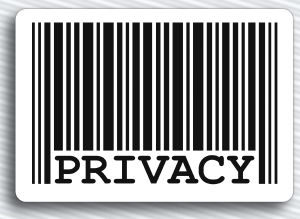Normally, this wouldn't be a press-worthy story. After all, India is not the first country to take a hard line against Internet free speech. The Thai military regime blocked the entire YouTube Web site earlier this year after a single video posted to the site depicted a woman's feet touching the head of the country's king. Likewise, Turkey also recently blocked YouTube for a video insulting the country's founder.
What the Indian authorities did to find the man’s identity to arrest him was to first query Google for the Orkut user IP, that unique address assigned to us when we surf the web which can be so helpful to authorities all over the world. With that IP address in hand – Google handed it over in “compliance with Indian legal process”, as they said – the authorities marched onwards to the Internet Service Provider, who in turn gave them a name assigned to that IP.
In the meantime, Google, by handing over the IP of the Orkut poster, were showing that they do not always respect basic human rights (like free speech), if those rights are “overruled” by local laws. (We don’t know how much Google knew of the charges – Google refused to give CNet details on the order – but if they didn’t know details, then it’s their job to ask for them.)
Google simply stated that “authorities are required to follow legal process to get information,” and that’s it for them. There’s just one caveat: a set of laws do not replace any person’s responsibility to act morally by their own definition, not when it comes to crucial, core issues. A company’s compromises in this area are being paid by citizens who end up in jail; with the company not being the source of the problem (the source of the issue is the government, which may or may not have been installed in democratic ways), but the company acting as a “mindless” and seemingly amoral government tool, like so many companies did before throughout history.
Only that, as it turns out, the ISP made an error and provided the wrong data, which then led to a 3-week jailing of a completely innocent person (as opposed to a person “guilty” of the crime of free speech within Orkut, that is).
When contacted for comment, a Google spokesperson told me that, "Google has very high standards for user privacy and a clear privacy policy, and authorities are required to follow legal process to get information. In compliance with Indian legal process, we provided Indian law enforcement authorities with IP address information of an Orkut user." This was the only comment that Google's PR people would give me in response to a lengthy set of questions that I sent over. In particular, I asked if they had received a court order for the information, or merely a polite request from the police. Their response leaves things very hazy.
So what are the lessons to learn from this incident?
Given that Mr. Kailash didn't actually post the photos, I can't provide him with any advice for protecting his privacy on the Internet. All I can suggest is that he hire a very good lawyer, and attempt to take Airtel to the cleaners. If we assume, however, that Airtel eventually handed over the identity of the real "criminal," then perhaps some advice can be offered.
Internet users: If you live in a country that does not respect freedom of speech and where you can get jailed for posting social commentary or otherwise subversive information to the Internet, technology can help you. Likewise, if you live in a country where the major telecom companies have willingly (and for a good profit) sold out their customers' privacy to large-scale illegal government surveillance, privacy-enhancing technologies can keep you safe.
Cnet News - Nov 2007






